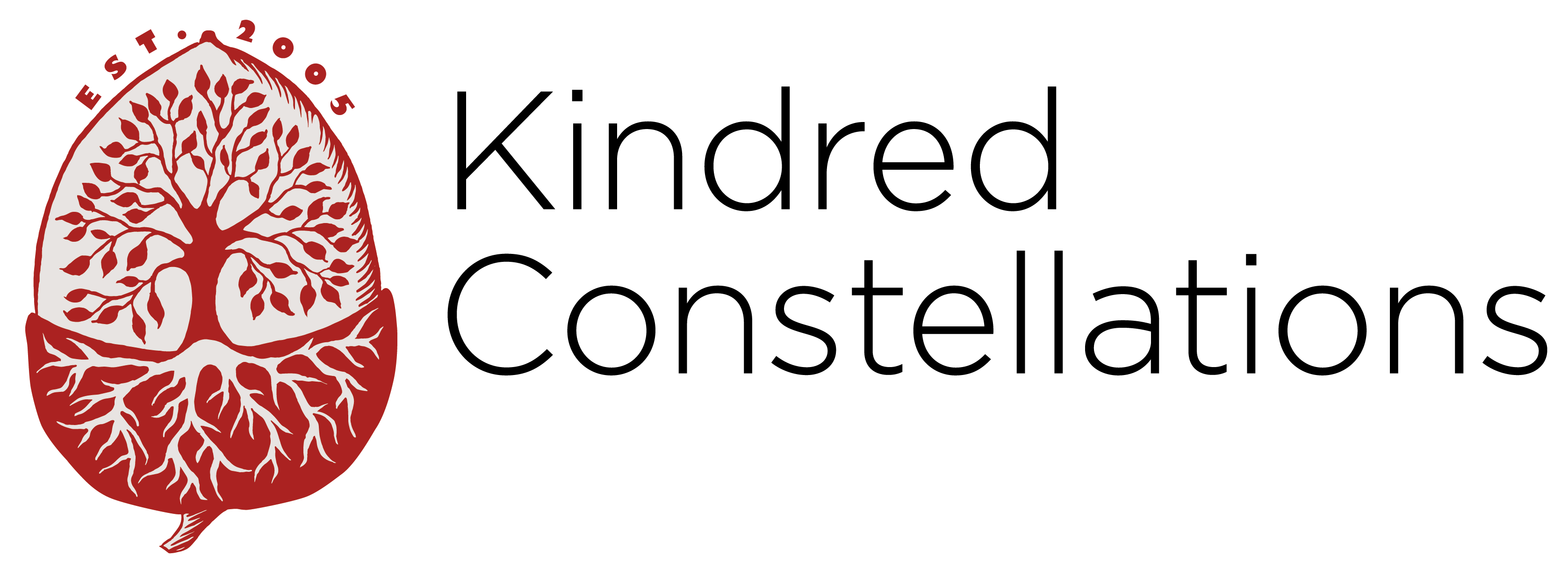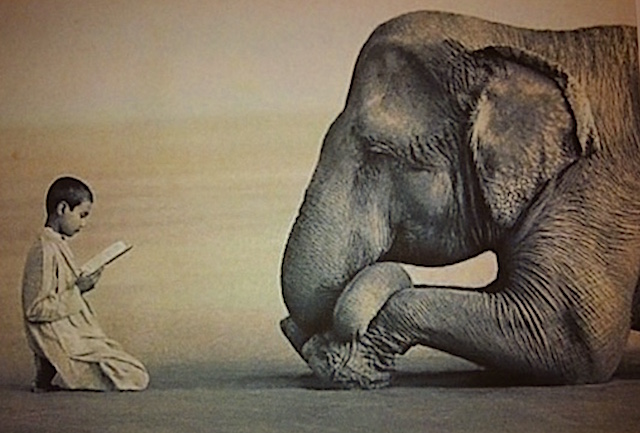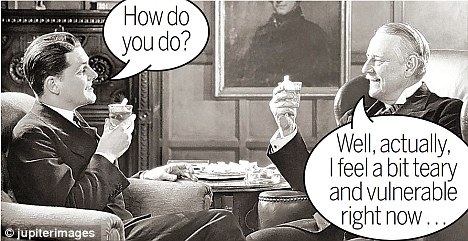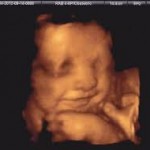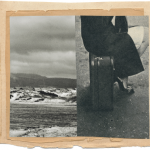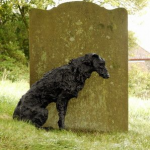Marcel Proust – In Search of Lost Time
10 Areas in which Stress and Repressed Emotions are Stored
Are you someone who bottles emotions? If so you may be dealing with a lot more muscle tension than you should be. I not too long ago came across an article written by Sean Grover who happens to be a psychotherapist among other things with at least 20 years under his belt of working with both adults and children. While we aren’t 100 percent sure that tension and stress manifest in these areas throughout his years of working with people and studying them Grover claims that he has managed to uncover where people store their ‘unwanted emotions.’ This meaning yes he does believe they manifest within the body and his thoughts on such are quite interesting and well worth sharing. These he says are the result of something known as our ‘psychosomatic reactions’ and so some of them will not be true for everyone but personally I tend to ache in these places seemingly lined up with what he claims to have found. Below I am going to go over the body parts he listed and what feelings he noted as being linked with each, do you also repress your feeling in these areas?

1. Insomnia
According to Grover when we are facing insomnia it could be stemming from some kind of life-changing event that is good or bad. We find it hard to sleep because our minds won’t allow us to truly relax. We’re either too worried or too excited.
2. Lower back pain/tension
Grover associates lower back pain with anger or frustration. The more we allow repressed anger to build up the more tension we may feel within our lower back area. While learning to address anger and deal with things like this head-on can be hard, it might be enough to relieve some tension if you’re willing to give it a go.
3. Stomach and Intestinal Issues
When we face stomach or intestinal issues that could be stemming from fear. The more afraid we are the more in knots our stomach will feel. I know this one is something I resonate with big time.
4. Heartaches and Chest Pains
Chest pain is not something we want to have to deal with but for many of us, it is something we face often. Now in many cases, there is some kind of underlying issue but when that issue is emotional it could be hard to come to terms with. Grover says that when we are hurting emotionally it can make our chest hurt physically as well. Heartache on an emotional level can leave us hurting broken hearts are not something to take lightly even though they are common in this day and age.
5. Throat issues
Oppression might not be something you think about often in current times but it is a real part of some people’s lives whether they realize it or not and according to Grover oppression can manifest as throat and even voice issues. He claims that this is because we tend to silence ourselves and cause tension within the area itself.
6. Breathing Issues
This one also hit home for me big time. Breathing issues and anxiety seem to be quite common alongside one another. Trying too hard to repress those anxious feelings can really leave you gasping for air sometimes or at least it can for me, does this happen to you?
7. Numbness/Disconnectedness
When we begin feeling numb overall it might not be as physical as we think it is but it still feels that way. This according to Grover can be the result of some kind of trauma. Through disassociating or disconnecting we are distancing ourselves from it whether we realize it or not but that can have effects on our bodies.
8. Headaches/Migraines
When our lives are out of control and we feel like we cannot do anything to regain control we might end up with tension headaches or if severe enough migraine issues. This possibly being the result of burnout.
9. Fatigue/Exhaustion
When we find that we are feeling overly tired or unable to continue on Grover says it could be stemming from some kind of resentment. This is because resentment stresses our body big time. The more we resent the less we are able to enjoy our lives. When someone becomes overwhelmed with this feeling bad things could end up happening.
10. Neck or Shoulder Pain/Muscle Aches
While something most people relate to overdoing their bodies these things according to Grover could be the result of taking on too much in your life. If you’re constantly doing things for other people you are taking on a huge burden and likely putting your own needs behind those of other people. This bringing aches and tightness to our muscles in these areas. What do you think about the things Grover has found through his years of working with the public and helping people overcome emotional repression? I for one think that he is onto something and that I need to be working within to overcome some of the things I’ve comet o understand about myself through reading his words.
Reconciling Systemic Discord
Harmony Conference
The Harmony Conference, hosted by the Sustainable Food Trust in July, was a wonderful event. Inspired by the Prince of Wales’s book ‘Harmony, A New Way of Looking at Our World’, the conference discussed how Harmony principles manifest in food, agriculture, education, health and music. Films were made of the many fascinating sessions – including my presentation with Nick Mayhew entitled “Reconciling Systemic Discord”, if you are interested, these can be seen HERE
Study of Holocaust survivors finds trauma passed on to children’s genes
New finding is first example in humans of the theory of epigenetic inheritance: the idea that environmental factors can affect the genes of your children
By Helen Thomson Printed in The Guardian 21.8.15

The team’s work is the clearest sign yet that life experience can affect the genes of subsequent generations. Photograph: Mopic/Alamy
Genetic changes stemming from the trauma suffered by Holocaust survivors are capable of being passed on to their children, the clearest sign yet that one person’s life experience can affect subsequent generations.
The conclusion from a research team at New York’s Mount Sinai hospital led by Rachel Yehuda stems from the genetic study of 32 Jewish men and women who had either been interned in a Nazi concentration camp, witnessed or experienced torture or who had had to hide during the second world war.
They also analysed the genes of their children, who are known to have increased likelihood of stress disorders, and compared the results with Jewish families who were living outside of Europe during the war. “The gene changes in the children could only be attributed to Holocaust exposure in the parents,” said Yehuda.
Her team’s work is the clearest example in humans of the transmission of trauma to a child via what is called “epigenetic inheritance” – the idea that environmental influences such as smoking, diet and stress can affect the genes of your children and possibly even grandchildren.
The idea is controversial, as scientific convention states that genes contained in DNA are the only way to transmit biological information between generations. However, our genes are modified by the environment all the time, through chemical tags that attach themselves to our DNA, switching genes on and off. Recent studies suggest that some of these tags might somehow be passed through generations, meaning our environment could have and impact on our children’s health.
Other studies have proposed a more tentative connection between one generation’s experience and the next. For example, girls born to Dutch womenwho were pregnant during a severe famine at the end of the second world war had an above-average risk of developing schizophrenia. Likewise, another studyhas showed that men who smoked before puberty fathered heavier sons than those who smoked after.
The team were specifically interested in one region of a gene associated with the regulation of stress hormones, which is known to be affected by trauma. “It makes sense to look at this gene,” said Yehuda. “If there’s a transmitted effect of trauma, it would be in a stress-related gene that shapes the way we cope with our environment.”
They found epigenetic tags on the very same part of this gene in both the Holocaust survivors and their offspring, the same correlation was not found in any of the control group and their children.
Through further genetic analysis, the team ruled out the possibility that the epigenetic changes were a result of trauma that the children had experienced themselves.
“To our knowledge, this provides the first demonstration of transmission of pre-conception stress effects resulting in epigenetic changes in both the exposed parents and their offspring in humans,” said Yehuda, whose work was published in Biological Psychiatry.
It’s still not clear how these tags might be passed from parent to child. Genetic information in sperm and eggs is not supposed to be affected by the environment – any epigenetic tags on DNA had been thought to be wiped clean soon after fertilisation occurs.
However, research by Azim Surani at Cambridge University and colleagues, has recently shown that some epigenetic tags escape the cleaning process at fertilisation, slipping through the net. It’s not clear whether the gene changes found in the study would permanently affect the children’s health, nor do the results upend any of our theories of evolution.
Whether the gene in question is switched on or off could have a tremendous impact on how much stress hormone is made and how we cope with stress, said Yehuda. “It’s a lot to wrap our heads around. It’s certainly an opportunity to learn a lot of important things about how we adapt to our environment and how we might pass on environmental resilience.”
The impact of Holocaust survival on the next generation has been investigated for years – the challenge has been to show intergenerational effects are not just transmitted by social influences from the parents or regular genetic inheritance, said Marcus Pembrey, emeritus professor of paediatric genetics at University College London.
“Yehuda’s paper makes some useful progress. What we’re getting here is the very beginnings of a understanding of how one generation responds to the experiences of the previous generation. It’s fine-tuning the way your genes respond to the world.”
Can you inherit a memory of trauma?
Researchers have already shown that certain fears might be inherited through generations, at least in animals.
Scientists at Emory University in Atlanta trained male mice to fear the smell of cherry blossom by pairing the smell with a small electric shock. Eventually the mice shuddered at the smell even when it was delivered on its own.
Despite never having encountered the smell of cherry blossom, the offspring of these mice had the same fearful response to the smell – shuddering when they came in contact with it. So too did some of their own offspring.
On the other hand, offspring of mice that had been conditioned to fear another smell, or mice who’d had no such conditioning had no fear of cherry blossom.
The fearful mice produced sperm which had fewer epigenetic tags on the gene responsible for producing receptors that sense cherry blossom. The pups themselves had an increased number of cherry blossom smell receptors in their brain, although how this led to them associating the smell with fear is still a mystery.
Vulnerability is not a weakness…
the mysterious and mighty…
‘It is easy to forget how mysterious and mighty stories are. They do their work in silence, invisibly. They work with all the internal materials of the mind and self. They become part of you while changing you. Beware the stories you read or tell; subtly, at night, beneath the waters of consciousness, they are altering your world.’
Ben Okri
Monday morning feeling?
Grandmothers… and us
Before we were conceived, we existed in part as an egg in our mother’s ovary. All the eggs a woman will every carry form in her ovaries while she is a four month old fetus in the womb of her mother. This means our cellular life as an egg begins in the womb of our grandmother. Each of us spent five months in our grandmother’s womb and she in turn formed within the womb of her grandmother. We vibrate to the rhythms of our mother’s blood before she herself is born. And this pulse is the thread of blood that runs all the way back throughthe grandmothers to the first mother.
Layne Redmond
The Battle to Belong
Depression and an Immigrant’s Struggle to Assimilate
by Roger Cohen in the International New York Times
JANUARY 9, 2015
NEVER before have so many people been on the move. New opportunity, like a bright star, draws immigrants across the world. In every one of the past four generations my family has moved, hopping from Lithuania to what is now South Africa and on to Britain, Israel and the United States. Sometimes they have found success and happiness. But the other side of displacement, its black sun, is loss.
The strain of burying the past, losing one identity and embracing another, can be overwhelming. Home is an indelible place. It is the landscape of unfiltered experience, of things felt rather than thought through, of the world in its beauty absorbed before it is understood, of patterns and sounds that lodge themselves in the psyche and call out across the years. When home is left behind, or shattered, an immense struggle often ensues to fill the void.
I was born in London to South African Jewish parents. We left almost immediately for South Africa, lived there for two years and returned to Britain. Although the word was never uttered, we were immigrants. Our priority was assimilation into Englishness. Pogroms and penury had been left far behind. The past was as silent as a village at the bottom of a dam.
Why then was I tugged to Israel as a college student? Our Jewish identity had been dribbling away ever since my great-grandparents and grandparents left Lithuania for South Africa around the turn of the 20th century. It was a slow process but appeared inexorable.
The author’s mother, June, between sessions at psychiatric hospitals in 1958, with the author, his little sister, Jenny, and their au pair, Jette.
Having been persecuted as Jews in the Eastern European shtetl, my forebears put their faith in education and science to usher them from backwardness. My father did have a bar mitzvah in Johannesburg in 1934 but hated the experience, seeing it as an exercise in obscurantism and hypocrisy. He reached England in the mid-1950s with no inclination to inflict such instruction on me.
His was the silence, or at least discretion, shared by many Jews — whether Holocaust survivors or not — in the postwar years, especially in Europe. There was after Auschwitz something shameful about survival that no Jew could abjure. Why them and not me? Better, at least in England, to look forward, work hard, say little, and confine protest to shunning German cars.
Tradition and custom and ceremony went missing. No days were different from any other days. We did not have a Christmas tree. Nor did we have anything else. Our deity was academic and professional achievement. My father’s rise as a scientist in his adopted country was meteoric.
Nonetheless in time I wanted what I was not given, a Jewish identity, because that, simply, is what I felt myself to be, a Jew. Being called a “Yid” during my first year in high school stirred within me a lost and then defiant identity. In England, Philip Roth wrote, people’s voices always drop “just a little” when Jews are mentioned — and indeed my mother’s voice used to drop when she said the word in the land of Lewis Namier’s “trembling Israelites.”
Adaptation to England, with its retreat-from-empire gloom, proved too much for my mother, June. Born on Human Street in the small South African mining town of Krugersdorp in 1929, she was bright and full of laughter, with lovely, pale skin and thick, bouncy curls. She was highly strung, with a rapier wit. In 1950, upon graduation from Johannesburg’s University of the Witwatersrand, she married Sydney, a young doctor born on Honey Street in the Berea district of the city. A few years later the girl from Human Street and the boy from Honey Street decided to turn their backs on the horrors of apartheid. They emigrated.
June’s first depression occurred soon after. It came on after she was uprooted, bounced back and forth between England and South Africa, set down at last in north London in 1957, pregnant with my younger sister, Jenny. She had a hardworking husband and was obliged to get on with life as best she could as she raised two infants without all the support she had known in South Africa. She placed coins in a meter for hot water. She strained to fit in, to drop South Africa and its tight-knit Jewish community, to belong again. She wanted to help my father, her overriding goal always. Instead, she collapsed.
She was admitted in 1958 to a sanitarium near London. Diagnosed with “post-puerperal depression,” she first underwent electroshock treatment on July 30, 1958, and again on Aug. 1, 1958, the day before my third birthday, as it took me more than a half century to discover. Later she suffered from manic depression and never shook it off. In each generation of my family the condition recurred — a great-uncle in Johannesburg, a cousin who committed suicide in Tel Aviv at age 28. The question is whether my mother’s condition was endogenous, a purely pharmacological issue, or exogenous, a psychological issue tied to our Jewish odyssey of the 20th century and the tremendous pressure of wandering, adapting, pretending, silencing and forgetting.
There can be no absolute answer. The study of epigenetics is a relatively new one that seeks to explore how something in the external environment can, in the words of Rachel Yehuda, an Israeli-born neuroscientist and psychiatrist, “affect the internal environment, and before you know it a gene is functioning in a different way.” Evidence is growing of such trauma-induced changes. Yehuda quoted Ezekiel in a recent interview with Tablet: “The fathers ate sour grapes, and the children’s teeth were set on edge.” My mother was always on edge. After the electroshock treatment she was like a tree hollowed out by lightning. As her life progressed, she craved return to the sun and South Africa.
This was not supposed to happen. As immigrants, our gaze was to be forward-looking. June, despite her suffering, made an immense effort to that end. But the shock of upheaval can prove too much for some people. The project of starting anew collapses; its foundations are too weak.
European societies make fitting in harder than America. The difference between those who came first and those who came last in the United States is negligible beside the intricate matter of British ancestry — not to mention the subtle matter of British anti-Semitism. June had been raised in a cocoon of new South African wealth so enveloping as to eliminate, almost overnight, the Lithuanian past. I was raised an English boy, as if England were my birthright.
A child of repetitive Jewish displacement, I would sit in a Christian epicenter of continuity, Westminster Abbey, every school-day morning. This irony was lost on me. I was unaware that my paternal grandparents and much of my mother’s family came from the shtetls of northern Lithuania; or that my upbringing, while bestowing the gifts of a superb liberal education, had also been devoted to the expunging of this past, as well as to the suppression of the not-unrelated history of my mother’s mental breakdown.
I see my forebears losing touch with one another and fanning out across the world. I see the ebb and flow of their fortunes and the battle for assimilation. Theirs is a constant, almost manic, reinvention — in Johannesburg, in London, in Jerusalem, in Cleveland. Yet all the while they carry within them a bipolar gene that forms an unbroken chain with the past, liable to surface at any moment. They fight for that feeling of belonging that goes with home, the elusive place where, as Robert Frost noted, “when you have to go there, they have to take you in.”
My mother’s suicide note to my father of July 25, 1978, was found in the Hampstead house on the hill she loved; the house she had, in a bout of manic activity, agreed to sell the previous March to buy a Georgian terraced jewel on Lord North Street in central London, only to cancel the sale when she plunged back into a depression in June.
She had suffered from a combination of symptoms: weight loss, dizzy spells, hot flashes, as well as alternating hyperactivity and inertia, or manic depression. In early February, a doctor had again suggested electroshock treatment. No! Two decades on from her 1958 confinement, she would not return to that hell. She would not tolerate again the metal plates being strapped to her swabbed temples, enclosing her skull in its high-voltage carapace.
The strain of hiding her condition was enormous. She had to pursue her work as a magistrate and maintain the outward appearance of familial stability. Voiding the real estate deal concluded in manic March filled June with guilt over the time and money wasted. One thing about mania, with its rashness and rages, is that it provides plenty of legitimate reasons for remorse during the ensuing depressive phase.
My father came home from work and found the bedroom doors closed. He thought little of it. June was often in bed. He fixed himself a whiskey, sat down with the papers. It was a mild summer’s evening, sunlight glinting through the trees, clouds of gnats against the fence. June’s cycles were running at three-month intervals. With luck, come September she would be active again. Sydney tossed the papers aside. He tried the bedroom door. It was locked. He raced around to the other door, from the bathroom.
It was locked. He ran outside. The net curtains were drawn. The windows looked sealed. On closer inspection, one was very slightly ajar.
My mother lay sprawled on the bed, a bottle of gin beside her. She had taken large doses of doxepin and Valium, washed down with the gin. Her arms were thrown back behind her head.
Her pupils were scarcely responsive, her breathing shallow. The suicide note written to my father was beside her bed: “You are made to do great things, make immensely useful discoveries to aid all mankind and I’m leaving you to continue unimpeded by my burden. I so much hoped to help you and to help you and to love and adore you …” June survived, just. The emetic effect of the gin probably saved her. She vowed to us all that she would never again “resort to such a drastic step.” But death was always the cajoling voice in her ear.
June tried to kill herself again on June 15, 1982. Again there was a suicide note. Again, she survived, barely. At last cancer took her on Jan. 2, 1999, at age 69.
Mental illness is a charnel house from which nobody escapes unscathed. My parents’ marriage, in its last two decades, was filled with terrible silences and fierce eruptions. After the loss of my mother, I had to find vitality at any price. Every relationship was a mausoleum in the making.
When a parent dies unhappy, there is something unresolved that keeps nagging. It is irrational to want to save my mother from her torment — and now I cannot anyway. Still, because of her, I had to go back. The void, ever renewed, that her absence has left can be explained only by her refusal to stop believing in love, however compromised by frailty her expression of it was. Love and acceptance and stoicism and dignity were, against all odds, her fundamental and enduring lessons. Her spirit, housed too long in that troubled body, had immense strength.
IT was my father she had loved most deeply, despite everything. My father, who had begun another relationship to survive, and who had hardened with the demands and the secrecy of that involvement, crumpled with a grief that shocked him after my mother’s death. He wrote to me:
“Your expanding memories of Mom have become infinitely precious and important; I share with you the vision of a light which is the obverse of her tormenting darkness and which in some miraculous way has become completely dominant since her death. I hope and pray that this vision of her will be an enduring source of strength and inspiration to you in all the years ahead, ever cherished and unsullied.
“For myself, I did have a fleeting dream of a few tranquil years carrying me into the sunset. I still hope for that in a mental and bodily sense. But I know that my spirit will not soon be released from those cruel demons that tore so relentlessly at the entwining fabric of love between Mom and me. I did strive within the feeble limits of my human fallibility to preserve and cherish and sustain her. But alas — for Mama ultimately, death was the only angel that could shield her from despair.”
We were too undone to ask for the urn with my mother’s ashes. I do not know where it ended up. The girl from Human Street left no trace of her anguished passage across the earth, from the Southern to the Northern Hemisphere. After her high school records from Barnato Park in Johannesburg, after the bulk of her medical records from the Holloway Sanatorium near London, her very physical remains vanished, too. From an early age, I had grown used to deploying my imagination as a defense. I told many other stories with many foreign datelines before I realized, returning to the place where I began, that the one story I had to tell was hers — and through hers that of a far-flung Jewish family, tied by the pain of forgetting, the strain of assimilation, the curse of mental illness and the ever-renewed consolation of love.
Roger Cohen is a columnist and the author of “The Girl From Human Street,” a memoir, from which this essay is adapted.
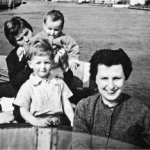
The author’s mother, June, between sessions at psychiatric hospitals in 1958, with the author, his sister and their au pair.
Quote from Bert Hellinger……
A Systemic Constellation Experience
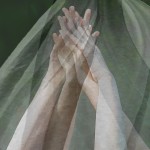
I received an email today from a participant at a constellation workshop this week… he said that the experience reminded him of this poem by Robert Frost. it is lovely, so here it is…
The SILKEN TENT by ROBERT FROST
She is as in a field a silken tent
At midday when a sunny summer breeze
Has dried the dew and all its ropes relent,
So that in guys it gently sways at ease,
And its supporting central cedar pole,
That is its pinnacle to heavenward
And signifies the sureness of the soul,
Seems to owe naught to any single cord,
But strictly held by none, is loosely bound
By countless silken ties of love and thought
To everything on earth the compass round,
And only by one’s going slightly taut
In the capriciousness of summer air
Is of the slightest bondage made aware.
